Research Seminar
The IOL Seminar and Lecture Series at the Zuse Institute Berlin serves to bring together researchers presenting their latest work and to organize tutorial lectures on valuable topics not typically covered in graduate coursework. Presentations usually take place on Wednesday afternoons in ZIB's Seminar Room 2006.
For talks before year 2024, see 2022–2023 and 2019–2021.
David Rügamer
– LMU Munich
@
ZIB, Room 2005 (Lecture hall)
Abstract.
Overparametrized neural networks are often viewed as wasteful, yet they can be a powerful driver of structure and sparsity. This talk examines how excess capacity can be leveraged to induce sparse and interpretable representations. I will begin by showing how differentiable sparsity mechanisms transform redundant parameterizations into structured solutions with theoretical guarantees. Building on this, I will link these ideas to insights on balancedness and equal-probability manifolds in Bayesian neural networks, where overparametrization shapes the posterior geometry and promotes prior conformity. The talk concludes with an outlook on foundation models and their potential for scalable, uncertainty-aware learning.
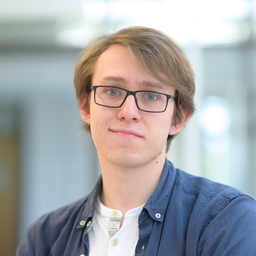 Kirill Khoruzhii
– ZIB
Kirill Khoruzhii
– ZIB
@
ZIB, Room 2006 (Seminar Room)
Title. Fast Algorithms for Structured Matrix Multiplication via Flip Graphs
Abstract.
This seminar reviews recent progress on finding fast bilinear schemes for matrix multiplication through the lens of tensor decomposition, contrasting continuous relaxations with discrete search. Emphasis is placed on the flip-graph viewpoint, where random-walk strategies traverse only valid decompositions and have surpassed reinforcement-learning approaches on targeted instances. Our several new schemes for structured matrix families uncovered by this method will be outlined. The session concludes with a broader perspective on random-walk–guided search on large graphs (including my recent NeurIPS 2025 spotlight results) and how such pipelines may drive the next phase of advances in tensor decomposition.
 Fabian Schaipp
– INRIA
Fabian Schaipp
– INRIA
@
ZIB, Room 2006 (Seminar Room)
Abstract.
We show that learning-rate schedules for large model training behave surprisingly similar to a performance bound from non-smooth convex optimization theory. We provide a bound for the constant schedule with linear cooldown; in particular, the practical benefit of cooldown is reflected in the bound due to the absence of logarithmic terms. Further, we show that this surprisingly close match between optimization theory and practice can be exploited for learning-rate tuning: we achieve noticeable improvements for training 124M and 210M Llama-type models by (i) extending the schedule for continued training with optimal learning-rate, and (ii) transferring the optimal learning-rate across schedules.
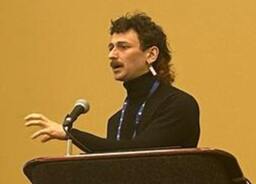 Gwen Maudet
– SNT Luxembourg
Gwen Maudet
– SNT Luxembourg
@
ZIB, Room 2006 (Seminar Room)
Title. Portfolio Approaches for the Generalizability of ML Solving Strategies in MIP Solvers
Abstract.
Recent advances in machine learning (ML) have shown great promise for enhancing Mixed Integer Programming (MIP) solvers, particularly in tuning solving strategies (SS) such as search heuristics, branching rules, and cutting-plane selection within the branch-and-bound algorithm. Existing ML-based approaches often achieve strong performance when trained on specific problem classes, but no method has yet enabled their full integration into general-purpose solvers. In this presentation, we present ongoing research on a portfolio-based framework designed to structure the MIP solution space. The framework partitions this space into subsets, for which dedicated ML-based solving strategy models are trained. By leveraging ML’s ability to generalize effectively within smaller, more homogeneous groups, our approach aims to deliver true generalizability across diverse MIP instances, ultimately providing tailored solving strategies for each case.
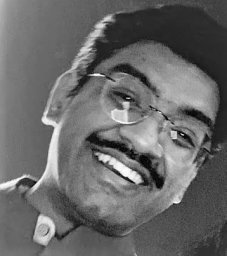 Anirbit Mukherjee
– University of Manchester
Anirbit Mukherjee
– University of Manchester
@
ZIB, Room 2006 (Seminar Room)
Title. Provable Size Requirements for Operator Learning and PINNs
Abstract.
An ongoing revolution in machine learning is about being able to set up neural systems that can approximate maps between Banach spaces. The most basic such setup is that of Deep Operator Nets (DeepONets). We will begin this talk by introducing this fascinating idea and how this leads to a mechanism of using machine learning to solve systems of Partial Differential Equations. Next, we will focus on our recent work proving “universal”/data-independent size requirements for DeepONets, for them to be able to perform well. We will emphasize the modularity of the proof structure and why it’s readily adaptable to many other ML systems. Thus, we pave the path towards a plethora of research avenues for deriving model size requirements for many other ML scenarios. This talk is largely based on our work with Amartya Roy (now a PhD student at IIT-Delhi), published in Transactions in Machine Learning (TMLR) in 2024, https://openreview.net/pdf?id=RwmWODTNFE. Towards the end, we will touch upon the following work, https://arxiv.org/abs/2507.06967, where a similar result was obtained for PINNs, with my PhD student Sebastien Andre-Sloan and Prof. Matthew Colbrook.
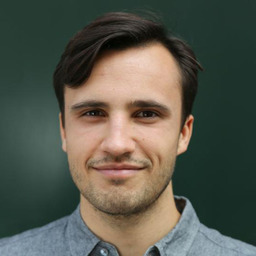 Christophe Roux
– ZIB
Christophe Roux
– ZIB
@
ZIB, Room 2006 (Seminar Room)
Title. Bounding geometric penalties in Riemannian optimization
Abstract.
Riemannian optimization refers to the optimization of functions defined over Riemannian manifolds. Such problems arise when the constraints of Euclidean optimization problems can be viewed as Riemannian manifolds, such as the symmetric positive-definite cone, the sphere, or the set of orthogonal linear layers for a neural network. This Riemannian formulation enables us to leverage the geometric structure of such problems by viewing them as unconstrained problems on a manifold. The convergence rates of Riemannian optimization algorithms often rely on geometric quantities depending on the sectional curvature and the distance between iterates and an optimizer. Numerous previous works bound the latter only by assumption, resulting in incomplete analysis and unquantified rates. In this talk, I will discuss how to remove this limitation for multiple algorithms and as a result quantify their rates of convergence.
 Deborah Hendrych
– ZIB
Deborah Hendrych
– ZIB
@
ZIB, Room 2006 (Seminar Room)
Title. Solving Optimal Experiment Design with Mixed-Integer Convex Methods
Abstract.
We tackle the Optimal Experiment Design Problem, which consists of choosing experiments to run or observations to select from a finite set to estimate the parameters of a system. The objective is to maximize some measure of information gained about the system from the observations, leading to a convex integer optimization problem. We leverage Boscia.jl, a recent algorithmic framework, which is based on a non-linear branch-and-bound algorithm with node relaxations solved to approximate optimality using Frank-Wolfe algorithms. One particular advantage of the method is its efficient utilization of the polytope formed by the original constraints which is preserved by the method, unlike alternative methods relying on epigraph-based formulations. We assess our method against both generic and specialized convex mixed-integer approaches. Computational results highlight the performance of our proposed method, especially on large and challenging instances.
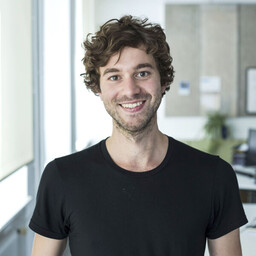 Lorenz Richter
– ZIB
Lorenz Richter
– ZIB
@
ZIB, Room 2006 (Seminar Room)
Title. A Dynamical Systems Perspective on Measure Transport and Generative Modeling
Abstract.
Generative modeling via measure transport can be effectively understood through the lens of dynamical systems that describe the evolution from a prior to the prescribed target measure. Specifically, this involves deterministic or stochastic evolutions described by ODEs or SDEs, respectively, that shall be learned in such a way that the respective process is distributed according to the target measure at terminal time. In this talk, we show that this principled framework naturally leads to underlying PDEs connected to the density evolution of the processes. On the computational side, those PDEs can then be approached via variational approaches, such as BSDEs or PINNs. Using the former, we can draw connections to optimal control theory and recover trajectory-based sampling methods, such as diffusion models or Schrödinger bridges - however, without relying on the concept of time reversal. PINNs, on the other hand, offer the appealing numerical property that no trajectories need to be simulated and no time discretization has to be considered, leading to efficient training and better mode coverage in the sampling task. We investigate different learning strategies (admitting either unique or infinitely many solutions) on multiple high-dimensional multimodal examples.
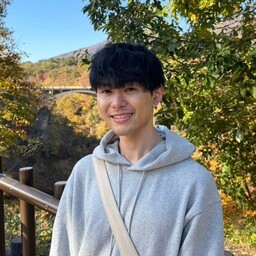 Takeshi Koshizuka
– University of Tokyo
Takeshi Koshizuka
– University of Tokyo
@
ZIB, Room 2006 (Seminar Room)
Title. From Optimal Transport to Schrödinger Bridges: A Variational Perspective on Population Dynamics
Abstract.
In this talk, I present a unified variational framework for modeling population dynamics from sparse, unaligned snapshots. I begin with the classical static Monge problem and its dynamic reformulation by Brenier-Benamou, showing how minimal-energy velocity fields connect two marginal distributions. Building on this foundation, I introduce a general Lagrangian cost to enable richer action modeling and add an entropy regularizer to capture diffusion effects. By leveraging the smoothness and convexity of the Lagrangian, I derive a dual formulation that reveals the coupled Hamilton-Jacobi-Bellman (HJB) - Fokker-Planck (FP) PDE system as an alternative perspective. Next, I survey four machine-learning methods—NLSB (Neural Lagrangian SB), DeepGSB (Deep Generalized SB), Action Matching, and GSB-Matching—and compare them in terms of convergence guarantees, supported cost functions, and computational scalability. I provide practical guidance on selecting and applying the right approach for real-world population-inference tasks.
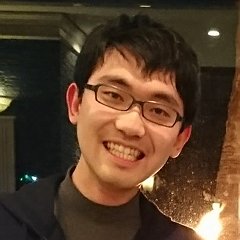 Yusuke Kimura
– FUJITSU
Yusuke Kimura
– FUJITSU
@
ZIB, Room 2006 (Seminar Room)
Title. Multi-node quantum circuit simulation with decision diagram in HPC
Abstract.
Decision diagram is a data structure that has been used for a long time to represent logic functions. Recently, the development of quantum computers has become very active, and decision diagrams are used in quantum circuit simulation because it can represent quantum states (complex vectors) and quantum gates (complex unitary matrices) with less memory. In this presentation, I will explain a method for large-scale parallelization of quantum circuit simulations using decision diagrams in an HPC (High-Performance Computing) environment. I will also discuss the difference between quantum circuits that can be simulated quickly with decision diagrams and those that are slow, and discuss suitable applications.
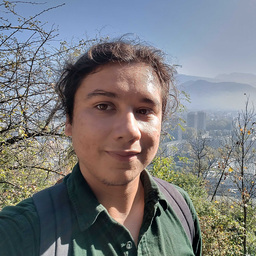 Seta Rakotomandimby
– ENPC / ZIB
Seta Rakotomandimby
– ENPC / ZIB
Title. Minimization on the sphere and cut selection for the Capra-cutting plane method
Abstract.
In 1960 Kelley proposed a cutting plane method to minimize a continuous convex objective function over a compact set. This iterative method consists at each step in minimizing a polyhedral approximation of the objective function before improving the approximation by a valid affine cut. In generalized convexity, the affine functions giving the cuts are replaced by some family of base functions. This base functions are chosen so that the objective function is their supremum, making it abstract convex. In this framework, Kelley’s algorithm has been generalized to continuous abstract convex functions by Pallaschke and Rolewicz in 1997 and Rubinov in 2000. We continue the generalization of the cutting plane method by providing a convergence result that can be applied to lower semicontinuous objective functions. This convergence result is motivated by the Capra-convexity results in 2022 by Chancelier and De Lara on the l₀ pseudonorm, which is lower semicontinuous. As explicit formulas for the Capra-subdifferential of the l₀ pseudonorm have been calculated by Le Franc in 2024, we can now implement Capra-cutting plane methods for the sparse problem of minimizing l0 over a compact set.
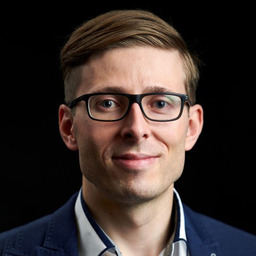 Sebastian Knebel
– ZIB
Sebastian Knebel
– ZIB
@
ZIB, Room 2006 (Seminar Room)
Title. Koopman von Neumann mechanics
Abstract.
The use of quantum computers in the simulation of dynamical systems promises many advantages. In order to achieve this objective, it is necessary to employ a unitary description of the dynamical system. One approach to this is the Koopman-von Neumann framework. However, adapting this framework for practical quantum computation requires special discretizations. This talk presents a novel approach to bridge this gap, enabling efficient quantum simulations of classical dynamical systems.
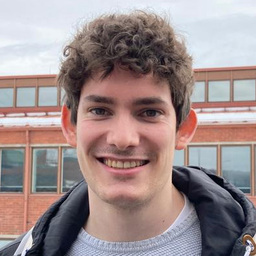 Jannis Halbey
– ZIB
Jannis Halbey
– ZIB
@
ZIB, Room 2006 (Seminar Room)
Title. Frank-Wolfe for strongly convex sets
Abstract.
The Frank-Wolfe method is a classical first-order algorithm for constrained optimization that avoids projections by relying on linear minimization oracles. While extensively studied over polytopes, its behavior over strongly convex domains remains less understood, especially near the boundary. In this talk, we will explore the challenges of optimizing over such sets, with a particular focus on the difficulty of finding optima located on the boundary. Using the simple example of projections onto the L2-ball, we will provide geometric insights into convergence behavior of Frank-Wolfe. This example illustrates fundamental limitations of the method in boundary regimes and motivates further analysis of step size strategies and alternative update directions.
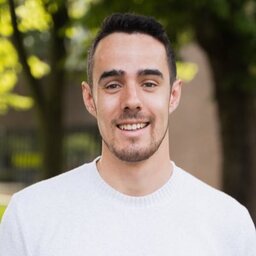 Jan Pauls
– Universität Münster
Jan Pauls
– Universität Münster
@
ZIB, Room 2006 (Seminar Room)
Title. Advancing Climate Strategies - High-Resolution Canopy Height Estimation from Space
Abstract.
Reliable and detailed information on forest canopy height is essential for understanding the health and carbon dynamics of forests, which play a pivotal role in climate adaptation and mitigation strategies. Traditional methods of forest monitoring, while foundational, lack the global coverage and are often costly, hindering effective policymaking. Jan Pauls and colleagues have developed a novel framework using satellite data to estimate canopy height on a global scale. The approach combines cutting-edge data preprocessing techniques, a unique loss function to mitigate geolocation inaccuracies, and data filtering from the Shuttle Radar Topography Mission to enhance prediction reliability in mountainous areas. The framework significantly improves upon existing global-scale canopy height maps. By offering a high-resolution (10 m) global canopy height map, the produced map provides critical insights into forest dynamics, aiding in more effective forest management and climate change mitigation efforts. This talk will explore the methods and implications of this work, demonstrating how advancements in Earth observation and machine learning can revolutionize global forest assessments and ecological studies.
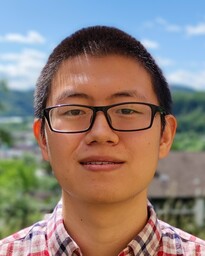 Ye-Chao Liu
– ZIB
Ye-Chao Liu
– ZIB
@
ZIB, Room 2006 (Seminar Room)
Title. Entanglement detection via Frank-Wolfe algorithms
Abstract.
Entanglement is the core feature in the quantum world, which plays an important role in many quantum information processes. For low-dimensional and small systems, quantum entanglement can be detected by the positive partial transpose (PPT) criterion sufficiently and necessarily. However, it is tricky to detect entanglement for high-dimensional and/or large multipartite quantum systems, both theoretically and numerically. In this work, with the help of the Frank-Wolfe algorithms, or named conditional gradient algorithms, and their progress in recent years, we develop a high-precision numerical tool that can certify quantum entanglement and quantum separability at the same time. Our method can detect the entanglement of bipartite systems with local dimensions higher than 20. For multipartite systems, our method can characterize entanglement within not only a specific partition, but also the more general k-separability structure, which includes the genuine multipartite entanglement (GME) problem (i.e., 2-separability), up to 10 qubits. Moreover, the overall design of the tool is oriented towards experimentation, which can access the raw data and achieve an operational entanglement witness. Last but not least, our method supports the analysis of noise robustness for arbitrary noise types, not limited to conventional white noise.
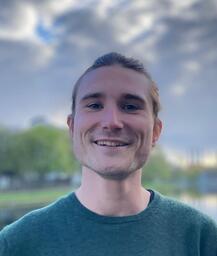 Konrad Mundinger
– ZIB
Konrad Mundinger
– ZIB
@
FUB, Room 119 A3
Title. Neural Networks for Unsupervised Discovery of Plane Colorings
Abstract.
We present a framework that transforms geometric and combinatorial problems into optimization tasks by designing loss functions that vanish precisely when the desired coloring properties are achieved. We employ neural networks trained through gradient descent to minimize these loss functions, allowing for efficient exploration of the solution space. We demonstrate the effectiveness of the method on variants of the Hadwiger-Nelson problem, which asks for plane colorings that avoid monochromatic unit-distance pairs and sketch how the approach can be applied to other problems.
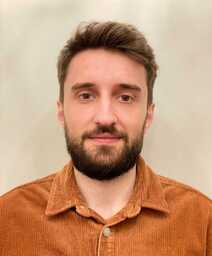 Gioni Mexi
– ZIB
Gioni Mexi
– ZIB
@
ZIB, Room 2006 (Seminar Room)
Title. Demystifying Pseudo-Boolean Conflict Analysis through a MIP Lens
Abstract.
For almost two decades, mixed integer programming (MIP) solvers have used graph-based conflict analysis to learn from local infeasibilities during branch-and-bound search. In this talk, we discuss improvements for MIP conflict analysis by instead using reasoning based on cuts, inspired by the development of conflict-driven solvers for pseudo-Boolean optimization. Phrased in MIP terminology, this type of conflict analysis can be understood as a sequence of linear combinations, integer roundings, and cut generation. We leverage this MIP perspective to design a new conflict analysis algorithm based on mixed integer rounding cuts, which theoretically dominates the state-of-the-art method in pseudo-Boolean optimization using Chvátal-Gomory cuts. Furthermore, we discuss how to extend this cut-based conflict analysis from pure binary programs to mixed binary programs and-in limited form-to general MIP with also integer-valued variables. Our experimental results indicate that the new algorithm improves the default performance of SCIP in terms of running time, number of nodes in the search tree, and the number of instances solved.
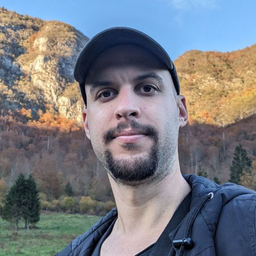 Alejandro Ramos
– ZIB
Alejandro Ramos
– ZIB
@
ZIB, Room 2006 (Seminar Room)
Title. An Overview of Quantum Optimal Control Algorithms
Abstract.
Quantum optimal control is a vital area of research enabling the precise manipulation of quantum systems to achieve desired objectives, including quantum state preparation, optimization of quantum gate operations and manipulation of chemical reactions. We will begin the talk by presenting the quantum optimal control problem, followed by a quick overview of various algorithms from the literature designed to address this problem. The discussion will conclude with an exploration of some practical applications.
Olivia Röhrig
– ZIB
@
ZIB, Room 2006 (Seminar Room)
Title. Inference of Differential Privacy properties of julia code
Abstract.
Differential privacy is a concept that can be used to express the extent to which algorithms like database queries, statistics and machine learning procedures, preserve a certain notion of privacy of an input dataset. Prominent applications of the technique include the US census and user data aggregation procedures of multiple large tech companies. The correct implementation of such algorithms requires a substantial amount of care, which motivated the development of type systems tailored to verify the differential privacy properties of programs. We implemented a type checker for one such type system and integrated it with the julia programming language to enable not only verification but automatic inference of privacy parameters for a reasonable subset of julia code.
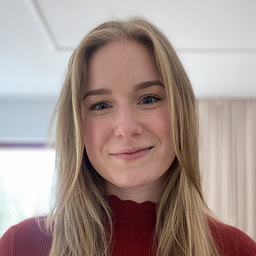 Antonia Chmiela
– ZIB
Antonia Chmiela
– ZIB
@
ZIB, Room 2006 (Seminar Room)
Title. Polyhedrality made easy: A generic cut framework with polyhedral closures
Abstract.
Cutting planes are a crucial tool in mixed-integer programming. When measuring the strength of a specific class of cutting planes, a key question is whether the corresponding cut closure is polyhedral, meaning that finitely many cuts are sufficient to obtain the closure. The vast amount of literature investigating polyhedrality for different kinds of cutting planes indicates that the field has not yet settled on a universal solution to this problem. In this talk, we will look at cutting plane generation through a unifying framework and establish conditions that ensure polyhedrality of cut closures. This enables us to prove polyhedrality for a broad range of cutting plane families more easily.
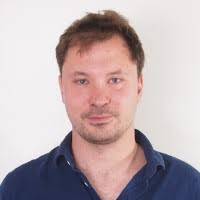 Thomas Kerdreux
– Galeio
Thomas Kerdreux
– Galeio
@
Zuse Institute Berlin (ZIB), Room 2006 (Seminar Room)
Title. Some Challenges for Satellite Analysis with AI
Abstract.
Over the past decade, an enormous amount of satellite data has become freely available, unlocking countless opportunities for researchers to address a wide range of monitoring challenges. These include tasks like greenhouse gas estimation, ground displacement detection, soil moisture analysis, and many more. Despite this abundance of data, significant challenges remain when it comes to developing truly operational satellite analytics products—especially when scaling to create diverse solutions for various use cases. In this talk, I will explore these challenges from both a research and commercial perspective, highlighting the practical hurdles faced in turning satellite data into actionable products. I will also discuss how recent advancements in geospatial foundation models are beginning to emerge as a versatile, “Swiss Army knife” solution for building scalable and efficient satellite analytics tools.
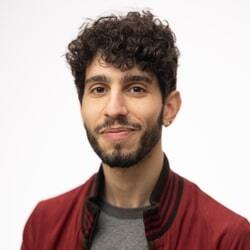 Orr Paradise
– Theory of Computation at UC Berkeley
Orr Paradise
– Theory of Computation at UC Berkeley
@
Zuse Institute Berlin (ZIB), Room 2006 (Seminar Room)
Title. Models That Prove Their Own Correctness
Abstract.
How can we trust the correctness of a learned model on a specific input of interest? This work introduces Self-Proving Models—models that can prove the correctness of their outputs via an interactive proof system. These models offer high-probability correctness for most outputs, with a verification algorithm that reliably detects any incorrect ones. The framework, rooted in theoretical guarantees, is demonstrated through experiments using transformers trained for arithmetic tasks such as computing the greatest common divisor (GCD).
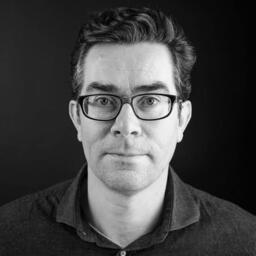 Ronald de Wolf
– QuSoft, CWI and University of Amsterdam
Ronald de Wolf
– QuSoft, CWI and University of Amsterdam
@
Zuse Institute Berlin (ZIB), Room 2006 (Seminar Room)
Title. Quantum Algorithms for Optimization
Abstract.
Faster algorithms for optimization problems are among the main potential applications for future quantum computers. There has been interesting progress in this area in recent years, for instance improved quantum algorithms for gradient descent and for solving linear and semidefinite programs. In this talk I will survey what we know about quantum speed-ups both for discrete and for continuous optimization, with a bit more detail about two speed-ups I worked on recently: for regularized linear regression and for Principal Component Analysis. I’ll also discuss some issues with this line of work, in particular that quadratic or subquadratic quantum speed-ups will only kick in for very large instance sizes and that many of these algorithms require some kind of quantum RAM.
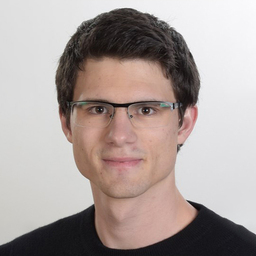 Ingo Meise
– Zuse Institute Berlin and Technische Universität Berlin
Ingo Meise
– Zuse Institute Berlin and Technische Universität Berlin
@
ZIB Lecture Hall
Title. A Comparison of Simple and Repeated Weighted Majority Voting
Abstract.
While weighted majority voting (WMV) is a popular method in ensemble learning for classification, more complex aggregation rules have recently been shown to have beneficial theoretical properties such as better convergence in the number of calls to a weak learning oracle and better PAC-bounds. After a brief discussion of the literature, this talk compares simple WMV to repeated WMV. In particular, a tight approximability analysis of 1) empirical error minimization, 2) regularization by sparsity and 3) sparsity maximization subject to zero training error is provided. It reveals that, under polynomial time transformations, the respective problems for simple WMV are equivalent to a hard version of Minimum Weighted Set Cover (MWSC) while they are equivalent to a simple version of MWSC for repeated WMV. This analysis of approximability implies two lower bounds on convergence in the number of calls to a weak learning oracle until perfect fit for 1) simple WMV and 2) arbitrary aggregation rules which emphasizes the worse scalability of simple WMV. These theoretical results are complemented by experiments on medium-sized data sets from LIBSVM showing that repeated WMV needs fewer oracle calls compared to AdaBoost and XGBoost while having even or better test accuracy on average.
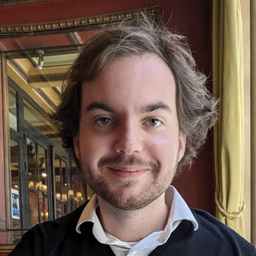 Hugo Abreu
– Zuse Institute Berlin
Hugo Abreu
– Zuse Institute Berlin
@
ZIB Seminar Room
Title. Bell inequalities with classical communication via Frank-Wolfe algorithms
Abstract.
Bell’s 1964 theorem established that the predictions of quantum theory cannot be explained by any local theory, making nonlocality a pivotal concept in the understanding of quantum mechanics. Quantifying the nonlocality of a quantum state in a given scenario is challenging, so we propose examining the amount of classical communication required to simulate the correlations obtained by a quantum state, and thereby indirectly characterizing its nonlocality. We explore Bell scenarios augmented with one or more bits of classical communication with Frank-Wolfe algorithms, and extend the BellPolytopes.jl Julia library to handle those scenarios. In this talk, I will introduce the theoretical framework, cover implementation details, and present some preliminary results.
 Lídia Rossell Rodríguez
– Zuse Institute Berlin and Universitat Politècnica de Catalunya
Lídia Rossell Rodríguez
– Zuse Institute Berlin and Universitat Politècnica de Catalunya
@
ZIB Seminar Room
Title. A Formal Proof of the Sensitivity Conjecture
Abstract.
The use of proof assistants has been on the rise these past few years thanks to their ability to detect small flaws in mathematical proofs. The integration of AI has also made the use of these kind of tools easier and it has opened a lot of possible advancements for the future. In this talk we will focus on the ITP Lean, with an emphasis on some results in the hypercube graph. The center of these results will be the Sensitivity Conjecture, which had already been formalized previously. Our additions to this problem are the formalization of two extremal examples to prove the tightness of the two inequalities in the conjecture. These new results involved a few challenges, such as having to implement a proof of the inclusion-exclusion principle. Additionally, they highlighted the importance of selecting a good way to express our statement, especially as a number of definitions had to be made and the different data representations came with different lemmas available.
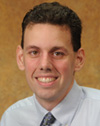 Carl Yerger
– Davidson College
Carl Yerger
– Davidson College
@
ZIB, Room 2005 (Lecture hall)
Title. Ramsey Theory on the Integer Grid: The "L"-Problem
Abstract.
This talk will begin with a brief introduction to classical Ramsey theory (whose main idea is that complete disorder is impossible) and a discussion of a few well-known results. No specialized background knowledge in combinatorics is required for this talk. Then joint work with Will Smith from University of South Carolina (formerly Davidson) on a Ramsey theory problem based on the integer grid will be presented. Specifically, the L-theorem (an easy corollary of the Gallai-Witt theorem) states that for any integer k, there exists some n such that a k-colored n by n grid must contain a monochromatic "L" (a series of points of the form (i, j), (i, j+t), and (i+t, j+t) for some positive integer t. In this talk, we will investigate the upper bound for the smallest integer n such that a 3-colored n by n integer grid is guaranteed to contain a monochromatic L. We use various methods, such as counting intervals on the main diagonal, to improve the upper bound from 2593 to 493. For the lower bound, we match the lower bound of 21 generated by Canacki et al. (2023) and discuss possible improvements.
 Jobst Heitzig
– Potsdam Institute for Climate Research
Jobst Heitzig
– Potsdam Institute for Climate Research
Title. Social Choice for AI Ethics and Safety
Abstract.
Many recent advances in the field of AI, including tools such as ChatGPT, rely on the training of foundation models. Foundation models are fine-tuned to avoid unsafe or otherwise problematic behavior, so that, for example, they refuse to comply with requests for help with committing crimes, or with producing racist text. One approach to fine-tuning, called reinforcement learning from human feedback, learns from humans’ expressed preferences over multiple outputs. Another approach is constitutional AI, in which the input from humans is a list of high-level principles. But which humans get to provide the feedback or principles? And how is their potentially diverging input aggregated into consistent data about “collective” preferences or otherwise used to make collective choices about model behavior? In this talk, I argue that the field of social choice is well positioned to address these questions, and discuss ways forward for this agenda, drawing on discussions in a recent workshop on Social Choice for AI Ethics and Safety held in Berkeley, CA, USA in December 2023.
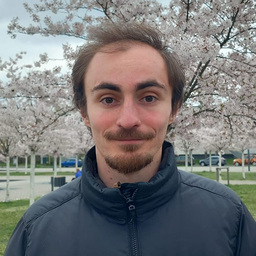 Yves Etienne Jäckle
– Zuse Institute Berlin and Technische Universität Berlin
Yves Etienne Jäckle
– Zuse Institute Berlin and Technische Universität Berlin
@
ZIB Lecture Hall
Title. Formal Theorem Provers and Formal Proofs from THE BOOK
Abstract.
This talk introduces and illustrates the ITP Lean, that allows the user to write mathematical statements and their proofs in a way that can be mechanically checked for correctness by a computer. Lean has gained increased attention in the past few years, due to hosting formalization projects of two Fields medalists, and due to the rise of automated theorem proving via AI models as a field of research. In this talk, we will exemplify how Lean is used by discussing our Master thesis project and the experiences we gained from it. We will also survey some large and completed formalization projects and give an insight into existing AI models surrounding Lean.
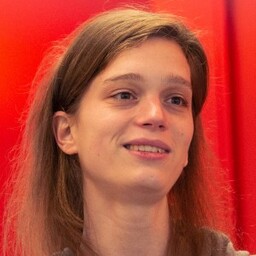 Sophie Huiberts
– Clermont Auvergne University
Sophie Huiberts
– Clermont Auvergne University
Title. Open problems about the simplex method
Abstract.
The simplex method is a very efficient algorithm. In this talk we see a few of the state-of-the-art theories for explaining this observation. We will discuss what it takes for a mathematical model to explain an algorithm’s qualities, and whether existing theories meet this bar. Following this, we will question what the simplex method is and if the theoretician’s simplex method is the same algorithm as the practitioner’s simplex method.
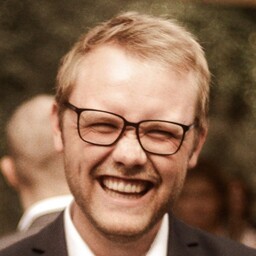 Moritz Link
– University of Konstanz
Moritz Link
– University of Konstanz
Title. Multiobjective mixed-integer nonlinear optimization with application to energy supply networks
Abstract.
In light of the ongoing developments in the climate crisis, it is necessary to consider factors beyond the sole economic perspective in energy supply network planning. This gives rise to a classical multiobjective optimization problem involving conflicting objective functions. The presence of choices in the model, coupled with the consideration of stationary flow equations, results in an opti mization problem with a mixed-integer nonlinear structure. Following a short introduction of some model-specific details and arising challenges, we present a novel method for computing an enclosure of the nondominated set of such prob lems. We prove finite convergence and demonstrate its effectiveness through numerical experiments. We conclude by offering a preview of ongoing extensions of this work.
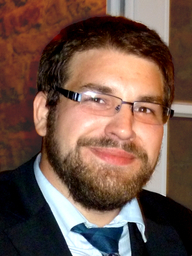 Andreas Tillmann
– TU Braunschweig
Andreas Tillmann
– TU Braunschweig
@
ZIB, Room 2006 (Seminar Room)
Title. MIP and ML approaches to matrix sparsification
Abstract.
Sparsity of matrices can be exploited, in particular, to speed up algorithms in various applications, e.g., in linear system solvers or second-order optimization schemes. This motivates to consider the matrix sparsification problem, in which we seek an equivalent (column-space preserving) representation of a given matrix with as few nonzero entries as possible. We derive sequential solution approaches based on bilinear and linear mixed-integer programs, respectively, and point out connections to certain machine learning tasks. One particular problem appears as a subproblem or special case in both these approaches: Finding a sparsest nonzero vector in the nullspace of a matrix. We will outline how a dedicated branch-and-cut method for this problem can be utilized in the envisioned matrix sparsification algorithms, and touch upon some open questions and challenges of our ongoing work
